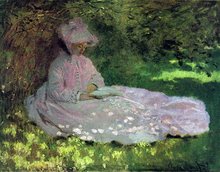Ladies,
Sorry I'm late with my post. I read this book while traveling to Phoenix last week. I read it in high school and saw the movie then as well. It is amazing how much it taught me (and others in the 60s--hence its Pulitzer prize) about racial discrimination, as well as what it was like to live in the South during this time period. It increased my understanding and shaped my attitudes even to the present day. Having grown up in a town where there was only one African American family (and they moved out after a few weeks), my multi-cultural experience was limited. In preparation for my student teaching experience in inner-city Salt Lake, I read Black Like Me and took Black History at BYU (I actually got to meet Alex Haley, author of Roots, and shake his hand). Again, there was one black student in my class and he was transferred out before I did anything more than observe. I really wanted to not be prejudiced.
Now that I live in the mid-west, have lots of African American students in my classes and teach an African history/slave trade/prejudice reduction unit it was really interesting to see what has and hasn't changed. Scout's and Jem's innocence and subsequent initiation into the realities of injustice and cruelty were poignant. It is a process that children everywhere go through, however. I teach middle school. Elementary students are somewhat colorblind and they don't see socio-economic differences either. But by sixth grade, they begin to be very aware of differences and they can be incredibly cruel.
Adults can only do so much to overcome this. Who children become is part of a process shaped by the way they deal with the injustices around them. I loved the way Atticus raised his children. At the end of Chapter 9 he has a discussion with Uncle Jack that Scout "overhears" and later realizes that her father wanted her to hear every word. " . . . I hope and pray I can get Jem and Scout through it without bitterness, and most of all, without catching Maycomb's usual disease." His calm, patient, principled example was awesome!
Then there is the incredible writing style of Harper Lee. (You should see my markings throughout the book.) As I was finishing it, I had an opportunity to walk through the bookstore next to my hotel. I stumbled across a book about Harper Lee entitled Mockingbird, by Charles J. Shields. It is fabulous, but was written without her help. (She doesn't give interviews.) I am only part-way through it, but I can tell you that Scout is Harper Lee and Dill, is based on her best friend, Truman Capote! Her father was an attorney. She lived, and still lives, in a small town in Alabama. The autobiographical stuff in To Kill a Mockingbird is really interesting.
I think I have some idea of why she only wrote one book. First, she won a Pulitzer Prize for her first book. How do you follow that? Second, I think she shared her life and thoughts with millions of people. That is a very vulnerable place to be. It may be she just didn't want to do it again. Third, my son, Jeff, suggested that she said what she wanted to say, what she was passionate about, and then she was done. Anyway, I am so glad to have had the opportunity to re-read this book. As soon as Rod reads it, we are going to rent the movie. (I won't let him see it before he reads the book!) Thanks, Amanda, for suggesting this book!
--Karen Smith
Monday, August 14
Subscribe to:
Post Comments (Atom)

2 comments:
I totally want to see the movie again, now. And I think I'm headed to the bookstore to get Mockingbird. Thanks for a great and passionate review.
Karen,
I loved your review. I appreciated you pointing out the innocence of Scout and Jem and how that reflected in the book. I think it really allowed me to read the proceedings honestly. Perhaps that is what Harper Lee wanted, to use the perspective of a child so that her readers could feel, really feel, with honesty what was happening. Remember when she had the children get upset with the verdict (remember Dill crying) and Dolphus Raymond, the rich "drunk" who drank Coca-cola from a bag talked about how children "Cry about the simple hell people give other people--without even thinking." She wrote so we could see through the eyes of a child.
Such a good book! And a great review!!!
:) Laurenda
Post a Comment